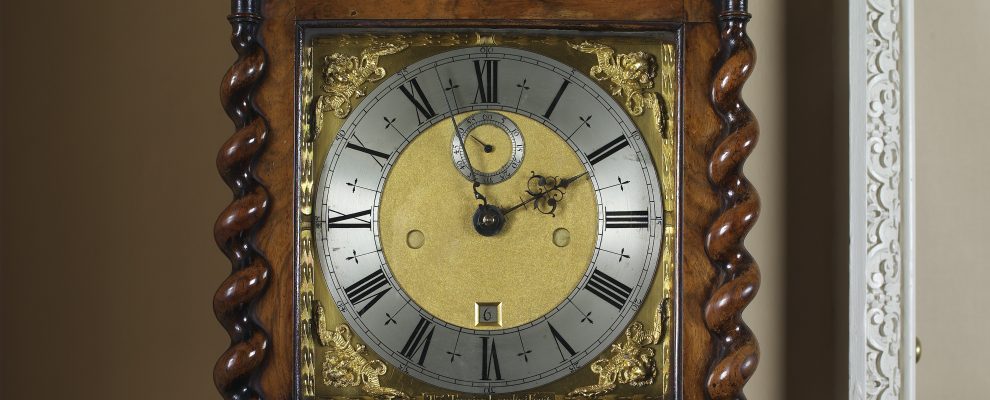The late seventeenth century has come to be known as a golden age of clockmaking. In Britain in particular this was a dramatic, even a revolutionary period in horology, when leaps in technology, most notably the invention of the pendulum and the verge escapement, transformed the accuracy and reliability of mechanical methods of timekeeping beyond anything that had previously been possible.
Clockmaking flourished in London, where a series of masters of the art pushed at the frontiers of horological technology: Thomas Tompion the ‘Father of Timekeeping’, Edward East, George Graham, Joseph Windmills, Daniel Quare, Edward Banger and Joseph Knibb (examples of the works of all these makers can be seen in the permanent collection at Fairfax House). By the end of the seventeenth century London led the world in clock development. Striking clocks were made that would run for ever longer periods of time without winding and adjustment. Timekeeping became so exact that additional power systems were added to clocks to drive the movement during the short period in which the weights were being wound, ensuring that not even the smallest fraction of time was lost.
During this period the impact of more accurate timekeeping and the greater co-ordination of activity it permitted was felt in every aspect of life. The revolutionary advances in timekeeping during the Georgian period gave to the world a transformative series of inventions offering new ways to calculate, co-ordinate and measure time and space.
The chronometer familiarly known as H4, created by John Harrison (1693–1776) proved that it was possible to solve the age-old problem of finding the longitude at sea by the use of an accurate timekeeper. John Arnold (1736–1799) and Thomas Earnshaw (1749–1829) managed to make chronometers in sufficient quantities and at moderate prices so that by the early nineteenth century the chronometer had become a standard instrument of navigation. The new precision made possible in the golden age of clockmaking truly transformed the nature of civilisation, not only across the British Isles but throughout the world.
(From Keeping Time a temporary exhibition at Fairfax House, 5th October-31st December 2012)

Name: Hannah Phillip
Title: Director
Source: Keeping Time (Fairfax House, 2012)
